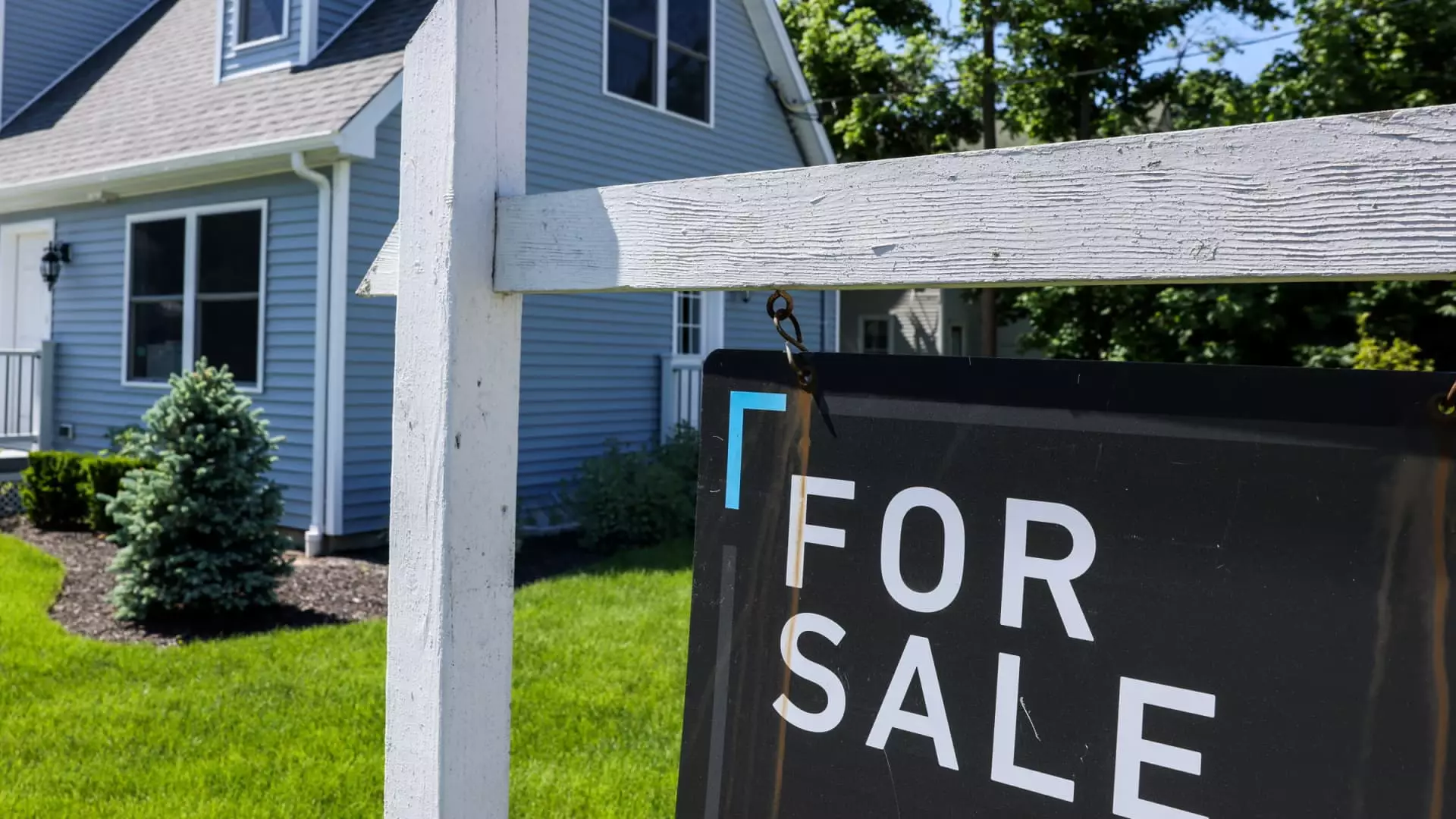Recent data indicates a modest decline in mortgage rates, influencing the refinancing landscape significantly. According to the Mortgage Bankers Association (MBA), refinance applications surged by 10% last week, marking a notable 33% increase compared to the same week in the previous year. This uptick in refinancing interest comes on the heels of a 12% increase reported the week prior, highlighting a trend that shows homeowners are keen to capitalize on even slight reductions in interest rates.
As of now, the average interest rate for a 30-year fixed mortgage stands at 6.95%, down from 6.97%. Despite this decrease, the associated points, which include origination fees, remained stable at 0.64 for loans that require a 20% down payment. Joel Kan, the MBA’s vice president and deputy chief economist, emphasized that this was the strongest week for refinance applications since October 2024, stating that borrowers with existing mortgages appear more responsive to interest rate changes.
While refinancing activity has spiked, the purchasing side of the mortgage market tells a different story. Mortgage applications for home purchases fell by 2% last week, although they did manage to exceed the results from the same week last year by 2%. The current real estate market remains challenging for prospective buyers, characterized by high prices and limited availability. This situation has resulted in a noticeable shift toward higher-end properties, with the average loan amount for purchase applications reaching $456,100—the highest since March 2022.
Interestingly, the data also revealed a decline in Federal Housing Administration (FHA) loans and an increase in Veterans Affairs (VA) loans during the same period, suggesting that specific buyer demographics are adjusting their strategies in response to the current economic climate.
The market’s current dynamics are intricately linked to inflation trends, with looming economic reports continuing to create uncertainty among consumers and lenders alike. As mortgage rates saw a slight uptick early this week, attention is now focused on the upcoming consumer price index report set to release on Wednesday. Matthew Graham, from Mortgage News Daily, highlighted the significance of this report, noting that early-year inflation data is notoriously challenging to predict. The mortgage market is keenly awaiting insights that will clarify whether inflation is stabilizing or progressing toward the Federal Reserve’s target of 2%.
In a climate where 17% of homeowners with a mortgage have interest rates at or above 6%, the potential benefits of refinancing are limited. Although the increase in applications reflects a response to lower mortgage rates, the actual volume remains relatively low due to high costs associated with refinancing. This dichotomy underscores the complexities of the current market, where even favorable rates may not present viable options for all.
The mortgage market is experiencing contrasting trends with rising refinancing demand and declining home purchasing applications. Homeowners are motivated to take advantage of slight dips in rates, while potential buyers face hurdles from a tight market and escalating prices. As economic indicators continue to unfold, all eyes will be on inflation data to shape expectations for future mortgage rates and market activities.

